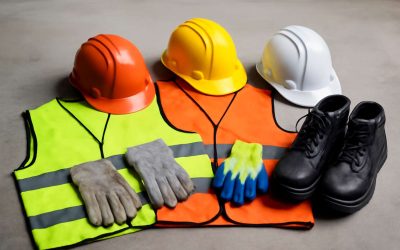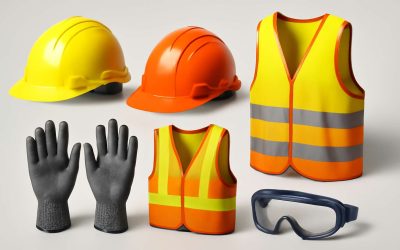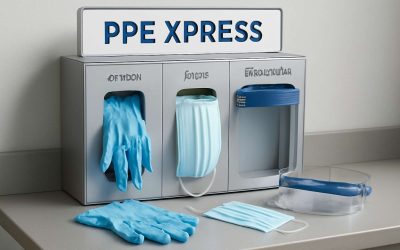
Personal protective equipment (PPE) is used to minimize exposures that can lead to injuries or illnesses. It can include hard hats, earplugs or muffs, respirators, and other protective clothing, shoes, and equipment.
Wearing PPE at work can help protect you from burns, cuts, amputations, and exposure to chemicals and other hazards. It also prevents you from becoming ill or injuring others.
You may need to wear PPE if you are working with hazardous substances, such as nitric acid, chlorine, or sodium hydroxide. You should choose the type of PPE that will give you the best protection for your job and protect your safety.
Use PPE with other infection control practices, such as hand-washing, using alcohol-based hand sanitizer, and covering coughs and sneezes. If you are unsure about which type of PPE is necessary, ask your employer or doctor for guidance.
Surgical masks are worn when you are working with bacteria, fungi, or viruses that may spread through contact with your nose and mouth. They can keep you from breathing in small germs that can cause diseases such as tuberculosis, measles, chickenpox, or hepatitis A. You can use a special respiratory mask (respirator) called an N95 respirator or a face shield.
You can also use a respirator when you are exposed to gases, vapors, or very large particles that can make it difficult for you to breathe naturally. If you are pregnant, you might need a different kind of respirator to keep your baby healthy and safe.
Eye protection includes glasses, goggles, and face shields that are designed to protect the eyes from blood, dust, or other substances. They can also protect the mucous membranes of the eyes from infectious droplets that are carried through the air.
These devices are often used in conjunction with other types of PPE for medical and surgical procedures. They can also be used to protect visitors from infection if they are in close proximity to a patient who is sick or who has an immune deficiency.
When selecting eye and face protectors, you should ensure they meet ANSI standards, are fit-tested, and have no cracks or other deformities in the lenses or straps. These devices must also be cleaned regularly and stored properly to avoid bacteria and microorganisms that can affect your vision.
Gowns and aprons are also worn during surgery to keep you from being exposed to bodily fluids or other contaminants. These items are also worn during certain tasks that involve contact with the skin or hands when you are working with drugs or other substances that can be harmful to your health.
Whenever working with power tools or other power equipment, you should wear protective goggles and face shields that are made of hard plastic or metal to reduce the risk of eye injury and loss of sight. If you have to use any type of chemical, you should also wear a glove that is specially designed for the application and removal of chemicals.



0 Comments